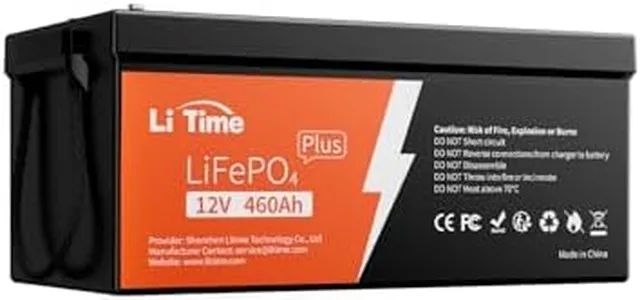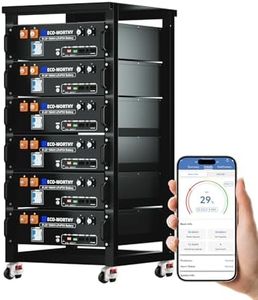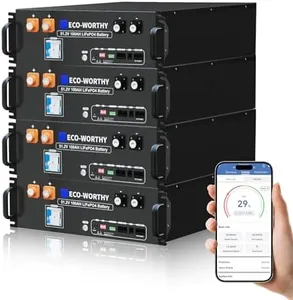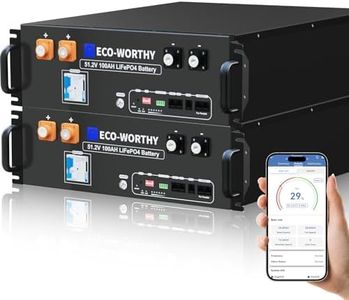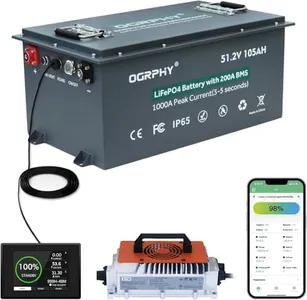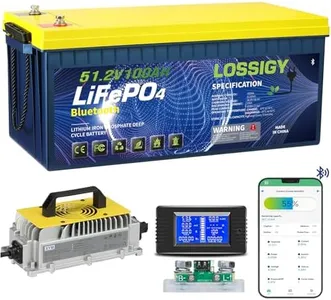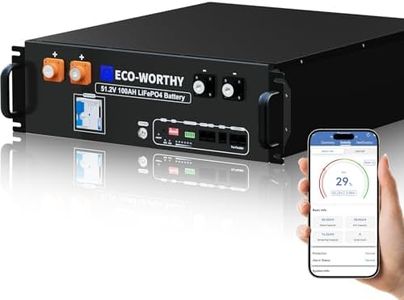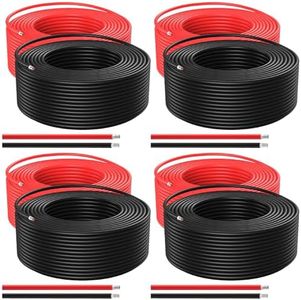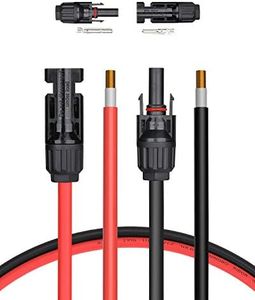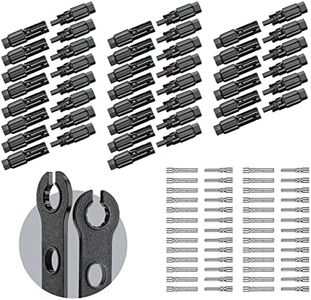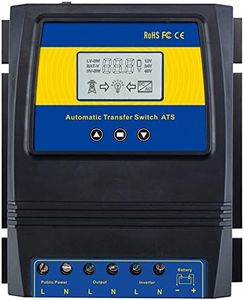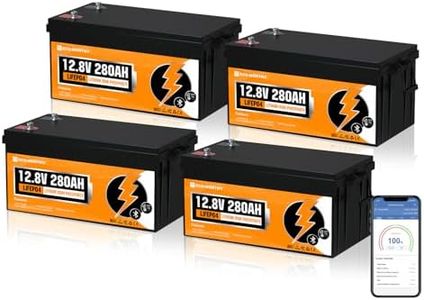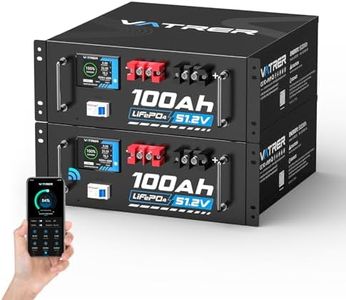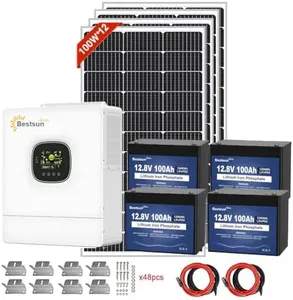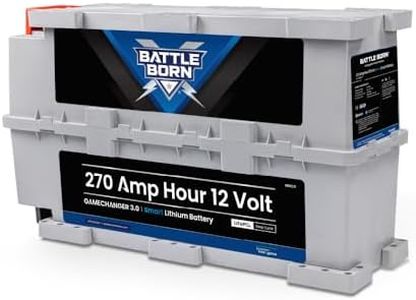10 Best Lithium Battery For Solar 2026 in the United States
Our technology thoroughly searches through the online shopping world, reviewing hundreds of sites. We then process and analyze this information, updating in real-time to bring you the latest top-rated products. This way, you always get the best and most current options available.

Our Top Picks
Winner
ECO-WORTHY 48V 600Ah Server Rack Battery LiFePO4 w/Bluetooth | 6 Pack 30.72kWh Solar Battery Kit for Home Backup | UL1973 & UL9540A & CEC Listed (Get Free Rack with 600A Busbar)
Most important from
222 reviews
The ECO-WORTHY 48V 600Ah LiFePO4 battery kit is a strong choice for home solar energy storage and backup. Its high capacity (around 30.72kWh) and 51.2V output provide ample power for extended use. The battery uses high-quality lithium iron phosphate cells, known for long cycle life and safety, supported by a 10-year limited warranty. It also carries important safety certifications (UL1973, UL9540A, CEC), which means it meets strict standards for electrical and thermal safety.
The design fits neatly into server racks and supports vertical mounting, saving space, and you can link up to 32 units for much larger energy needs. The built-in Bluetooth and WiFi allow easy monitoring via the ECO-WORTHY app, which is convenient for keeping track of battery health and performance. However, the kit is quite heavy at 600 pounds, which might require extra effort or help during installation. While it comes as a plug-and-play setup with all accessories included, its size and weight mean it’s best suited for dedicated home energy systems rather than portable use.
The ability to communicate with popular solar inverters makes system integration smoother but might be more than needed for simple setups. This battery kit offers a dependable, scalable option for homeowners looking for safe, long-lasting solar storage with smart features, though users should be prepared for its physical bulk and installation demands.
Most important from
222 reviews
ECO-WORTHY 48V 400Ah Server Rack Battery LiFePO4 w/Bluetooth | 4 Pack 20.48kWh Solar Battery Kit for Home Backup | UL1973 & UL9540A & CEC Listed (Get Free 48V Monitor)
The ECO-WORTHY 48V 400Ah lithium battery kit is a solid choice for home solar energy storage, especially if you need a reliable and expandable system. Its 51.2V and 100Ah capacity per battery (4 batteries included) provide a total of about 20.48kWh — enough to back up essential home power for several hours. The use of LiFePO4 cells means the battery lasts longer and stays safer compared to older lithium types. Importantly, it has strong safety certifications (UL1973, UL9540A, and CEC approval), which is reassuring for home use. You can monitor your battery easily via Bluetooth or WiFi through the ECO-WORTHY app, making it simple to keep an eye on performance without complicated tools.
The rack-friendly design saves space and allows you to connect up to 32 units together if you want to expand your system significantly. It also supports vertical mounting, which helps fit the battery in tight areas. On the downside, the battery is quite heavy (379 pounds total), so installation may require help or planning for sturdy support. The dimensions are moderate, but still something to consider if space is very tight.
The product comes with all necessary cables and accessories for a straightforward setup, which is great if you’re not a tech expert. While the price and weight might be a bit much for very small or budget-conscious solar setups, the long 10-year warranty and solid build quality make it a dependable investment for homeowners looking to store clean power safely and efficiently.
ECO-WORTHY 48V 200Ah LiFePO4 Lithium Battery (2 Pack 48V 100AH) w/Bluetooth | UL1973 & UL9540A & CEC Listed | 10.24KWh Server Rack Battery for Solar Energy Storage, Home Backup Power
The ECO-WORTHY 48V 200Ah LiFePO4 Lithium Battery (2 Pack) is a strong contender for solar and off-grid energy storage needs. With a total capacity of 10.24kWh and the ability to link up to 15 batteries for a massive energy storage solution, this battery is capable of handling significant power demands.
The inclusion of a Battery Management System (BMS) enhances safety by preventing overcharging, over-discharging, and short circuits. The sturdy metal enclosure is designed for durability, holding up under various conditions and ensuring a long lifespan. The battery offers an impressive cycle life of up to 6000 deep cycles, highlighting its longevity and reliability for long-term use.
It's also efficient, with real-time monitoring via an indicator lamp to keep track of the battery's status easily. The compatibility with popular solar inverter chargers and the plug-and-play setup simplifies installation, making it user-friendly even for those not very tech-savvy. This battery is ideal for off-grid, solar, and energy backup applications, providing robust energy independence and reliable performance.
